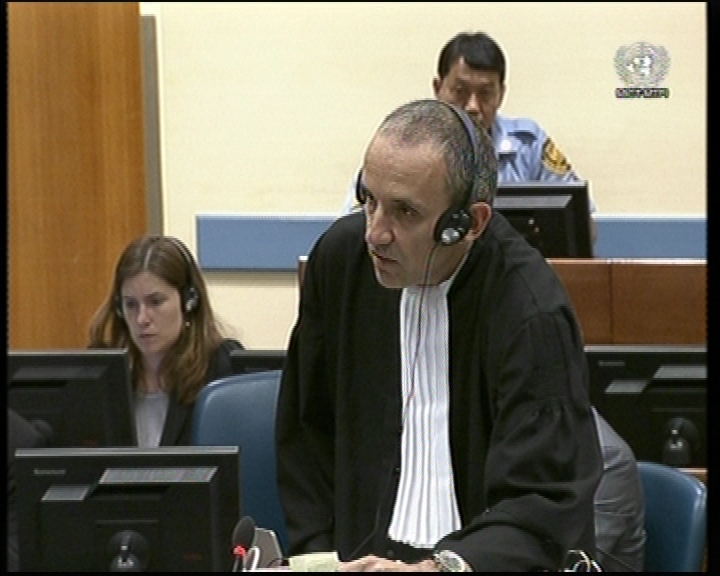Home
WHY DID BELGRADE SUPPORT KRAJINA SERBS DESPITE DISAGREEMENTS?
The defense of the former Serbian State Security Service is trying to prove that Belgrade supported the Republic of Serbia Krajina for reasons that had nothing to do with the goals of the joint criminal enterprise which was headed by Milosevic and which included the accused Stanisic and Simatovic
 Vladimir Petrović, Franko Simatović's defence counsel
Vladimir Petrović, Franko Simatović's defence counsel On the second day of General John Wilson’s cross-examination, Jovica Stanisic’s defense lawyer argued that even though Slobodan Milosevic often did not see eye to eye with the Knin leadership, he had to support the Republic of Serbian Krajina (RSK) to prevent the collapse of its military and the inevitable humanitarian disaster that would have followed. According to the defense, Milosevic had one more reason to support the RSK: internal Serbian politics. He was under threat from Vojislav Seselj, Serbian Radical Party leader, in the runup to the December 1993 elections. Seselj supported the Krajina leadership unreservedly and enjoyed their support in turn. These arguments should refute the prosecution case; according to the prosecutors, Milosevic supported the Krajina leadership because they were all part of a joint criminal enterprise. Milosevic played the main role, but the accused chiefs of the Serbian State Security Service were also participants.
Confronted with the document stating that the RSK authorities challenged ‘the authority of Belgrade to speak on their behalf’, General Wilson, who served as military adviser to the co-chairman of the Geneva Peace Conference at the time, said that the relations between Belgrade and Knin ‘were not characterized by any consistency; they would shift as time went by, depending on the developments. Periods of tense relations would be followed by close cooperation’.
The line of questioning pursued by Franko Simatovic’s lawyer Vladimir Petrovic also served to bolster the defense case: the relations between Belgrade and the leaderships in Knin and Pale were not always harmonious, as evidenced by the suspension of all aid except for humanitarian supplies in 1993 and finally the sanctions imposed by the Federal Republic of Yugoslavia on Republika Srpska in 1994. Petrovic asked the witness about the fate of various peace plans for Croatia and Bosnia and Herzegovina, focusing on which side accepted and which rejected different plans.
As General Wilson mentions ethnic cleansing several times in his statements, noting that as early as in the spring of 1992 about half a million displaced people were displaced, Simatovic’s lawyer asked him why the people had been displaced, i.e. how many of they had ‘fled the war, draft, poor economic outlook… and how many had been forced to leave their homes’. The witness said he had not classified the displaced persons in these categories, and the defense lawyer then read an excerpt from his statement where he says that the ‘primary source’ of information about displaced persons had been ‘local and international media’. He asked General Wilson, ‘is it really possible to draw serious conclusions on the basis of media reports?’. General Wilson agreed that it was not, and that he ‘may have been imprecise’ in his statement, adding that the UNPROFOR command in Zagreb always sought additional confirmation of various reports from other sources. Reports filed by the European monitoring mission, the UNHCR and a number of humanitarian organizations that were active in the region at the time all spoke about ethnic cleansing, he said.
General Wilson’s testimony will continue next Tuesday. The accused Jovica Stanisic did not attend the hearing and had waived his right to be present. The reason given was exhaustion.
